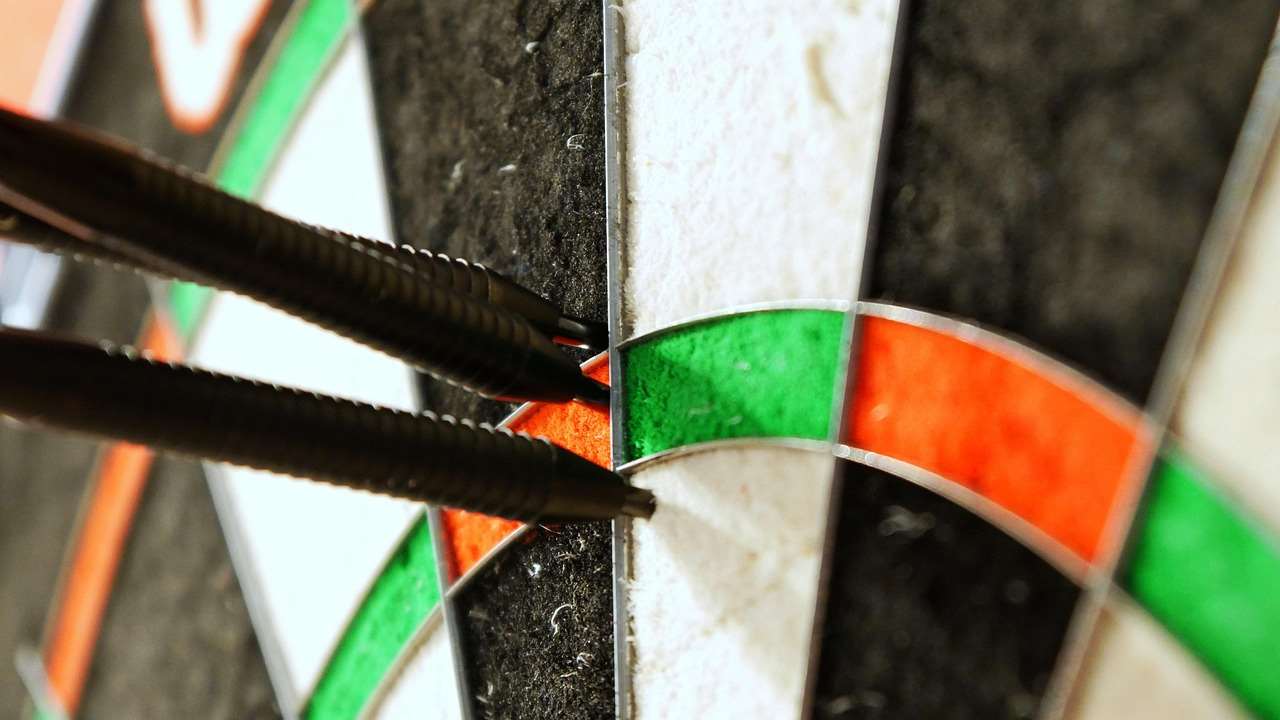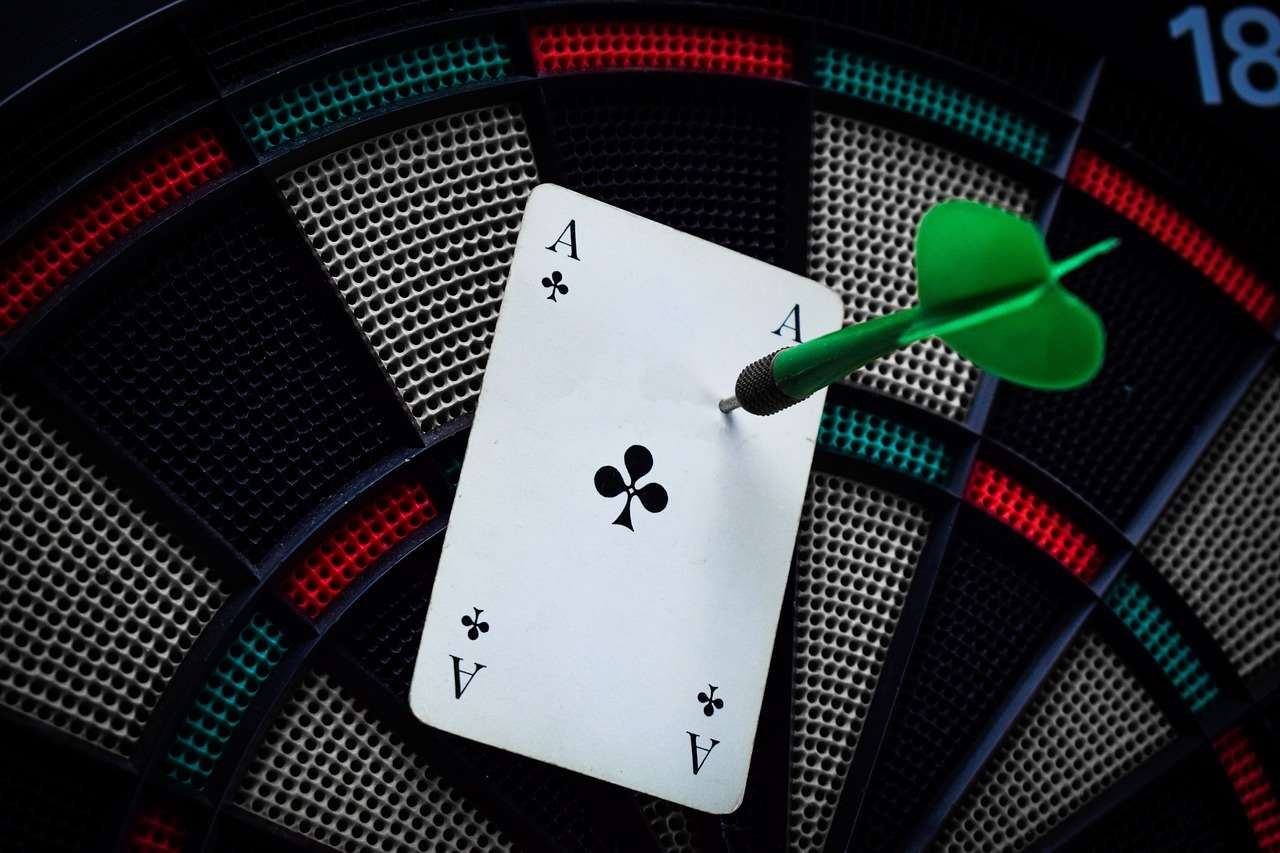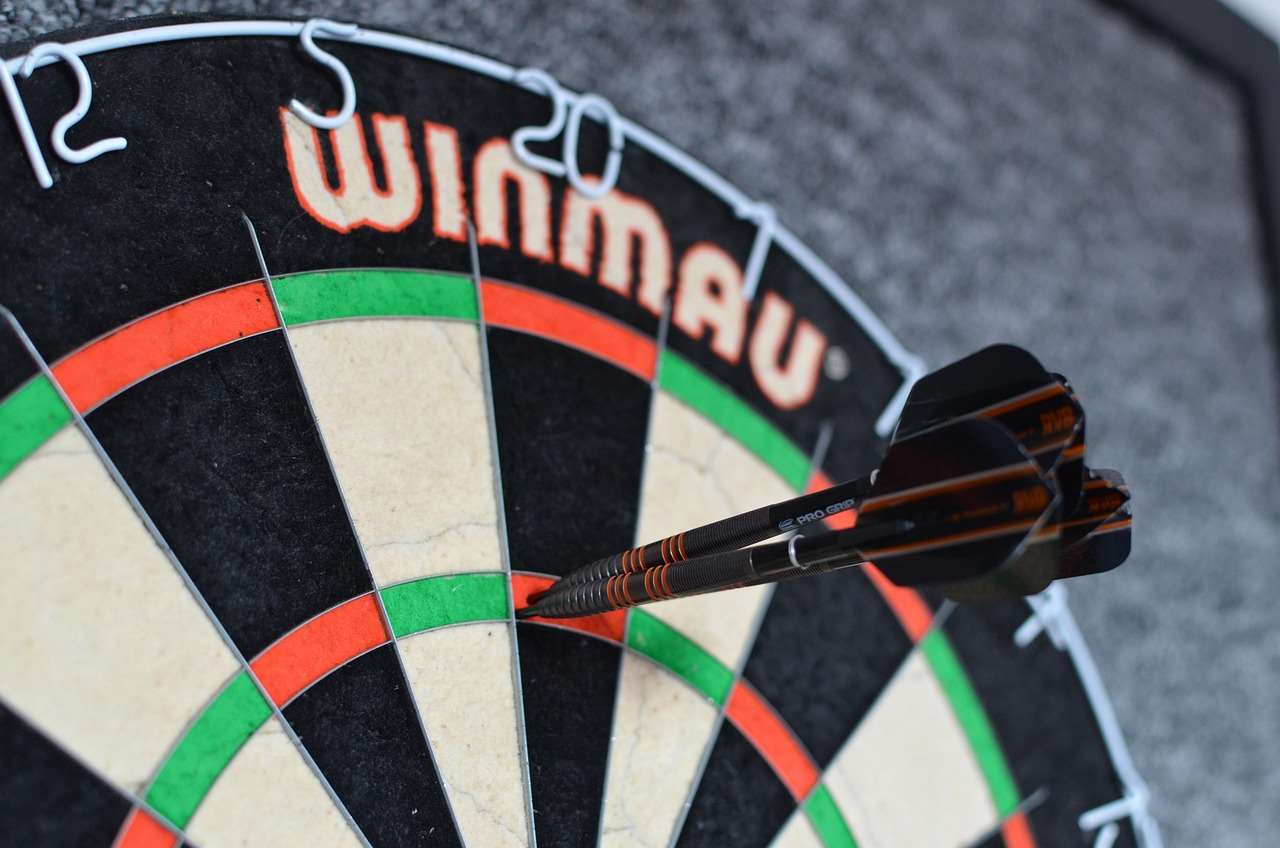The PDC tour card system explained role is fundamentally to determine which professional players have the right to compete regularly in the Professional Darts Corporation’s (PDC) ProTour events. This article delves into the intricacies of the PDC tour card system, explaining how it works, who is eligible, and its importance within professional darts.
⚠️ Still Using Pen & Paper (or a Chalkboard)?! ⚠️
Step into the future! The Dart Counter App handles all the scoring, suggests checkouts, and tracks your stats automatically. It's easier than you think!
Try the Smart Dart Counter App FREE!Ready for an upgrade? Click above!
Understanding the Basics: PDC Tour Card System Explained Role
The PDC tour card system explained role, at its core, is about granting access to the most lucrative and prestigious tournaments within the PDC circuit. These coveted tour cards provide a stable platform for professional players to earn a living and compete at the highest level. Holding a tour card unlocks opportunities to participate in Players Championship events, European Tour qualifiers, and ultimately, major televised tournaments like the World Championship and the World Matchplay.
The system ensures a blend of established stars and emerging talents, creating a competitive environment that drives the sport forward. Without a tour card, a player’s opportunities are significantly limited, forcing them to rely on qualifying events and secondary tours, which offer fewer chances and lower prize money.

How to Obtain a PDC Tour Card
There are several avenues for players to earn a PDC tour card. The primary methods include:
- Q-School: This is the most common route. Q-School, short for Qualifying School, is an annual event held in Europe and the UK. The number of tour cards awarded varies each year, but it’s typically around 30-35. Players compete over several days, earning points based on their performance. The top players on the Order of Merit (or those who win outright on a given day) secure a tour card.
- PDC Development Tour: Players who perform exceptionally well on the PDC Development Tour (for players aged 16-23) can earn a tour card based on their ranking. This provides a pathway for young talent to break into the professional ranks.
- PDC Challenge Tour: Similar to the Development Tour, success on the PDC Challenge Tour (for players who don’t hold a tour card) can lead to a tour card for the following year.
- Winning Major Tournaments: In some cases, winning a major PDC tournament (e.g., World Championship, World Matchplay) can automatically grant a tour card. However, this is less common as most major winners already hold a tour card.
Securing a tour card is a significant achievement, marking a player’s entry into the professional darts elite. It’s a testament to their skill, dedication, and hard work.
Maintaining Tour Card Status: The Order of Merit
Earning a tour card is only the first step. Players must then maintain their status by performing well on the ProTour. The PDC Order of Merit is the ranking system used to determine which players retain their tour cards. Prize money earned in PDC events contributes to a player’s ranking on the Order of Merit.
At the end of each two-year cycle, the bottom players on the Order of Merit lose their tour cards and must requalify through Q-School or other routes. This ensures that the tour is constantly refreshed with new talent, maintaining a high level of competition.
Therefore, consistent performance is crucial for tour card holders. Players must regularly participate in ProTour events and aim to reach the latter stages to accumulate prize money and climb the Order of Merit. Those who struggle to perform risk losing their card and being forced to fight their way back in.

The Impact of the PDC Tour Card System on Professional Darts
The PDC tour card system explained role extends far beyond simply granting access to tournaments. It has a profound impact on the entire ecosystem of professional darts. Here’s how:
- Professionalism: The tour card system encourages players to treat darts as a full-time profession. Knowing that they have a guaranteed spot in ProTour events allows them to invest in their training, coaching, and equipment. This leads to a higher standard of play and a more professional atmosphere.
- Competition: The system fosters intense competition. Players are constantly battling to improve their ranking on the Order of Merit, both to qualify for major tournaments and to retain their tour cards. This creates exciting and unpredictable matches, which are a major draw for fans.
- Development of Talent: The PDC Development Tour and Challenge Tour provide a crucial pathway for aspiring professionals. These tours offer opportunities for players to hone their skills, gain experience, and ultimately earn a tour card.
- Global Reach: The PDC attracts players from all over the world. The tour card system ensures that players from different countries have the opportunity to compete on the same stage, contributing to the global growth of the sport.
The Financial Aspects of Holding a PDC Tour Card
While holding a PDC tour card opens doors to significant earnings, it’s important to understand the financial realities. The cost of travel, accommodation, and entry fees for ProTour events can be substantial. Players often rely on sponsorships and other forms of income to supplement their prize money.
Furthermore, there’s no guarantee of success. Even with a tour card, players must consistently perform well to earn a decent living. Many tour card holders struggle to break even, especially in their early years. It requires dedication, discipline, and a strong work ethic to succeed financially as a professional darts player.
Successfully navigating the Business of Darts also means understanding darts tv rights value, and understanding how darts media deals work.
The Importance of Q-School: A Closer Look
Q-School is arguably the most critical event for aspiring professional darts players. It’s a high-pressure environment where dreams are made and broken. Players from all walks of life – seasoned professionals, amateur players, and even former tour card holders – compete for a limited number of tour cards.
The format of Q-School can vary slightly from year to year, but it typically involves several days of competition, with players earning points based on their performance. The top players on the Order of Merit at the end of the event secure a tour card for the following two years.
Q-School is not just a test of skill; it’s also a test of mental fortitude. Players must be able to handle the pressure, stay focused, and perform at their best under intense scrutiny. Many talented players crumble under the pressure, highlighting the importance of mental preparation.

Beyond the Tour Card: Alternative Routes to the Big Stage
While a tour card is the most direct route to the PDC ProTour, there are other ways for players to compete in major tournaments. These include:
- Qualifiers: The PDC often holds qualifiers for major tournaments, open to both tour card holders and non-tour card holders. These qualifiers provide an opportunity for players to earn a spot in prestigious events like the World Championship and the World Matchplay.
- Associate Members Qualifiers: Even without a tour card, becoming an associate member allows entry to specific qualifiers, increasing the chances of featuring in some events.
- Invitations: In some cases, the PDC may invite players to participate in tournaments based on their past performances or other factors. However, invitations are rare and typically reserved for established stars or players who have achieved notable success outside of the PDC.
The Future of the PDC Tour Card System
The PDC tour card system explained role is likely to evolve over time as the sport continues to grow and develop. The PDC is constantly reviewing and refining its rules and regulations to ensure fairness, competitiveness, and sustainability.
Potential changes could include adjustments to the Q-School format, modifications to the Order of Merit, or the introduction of new pathways for players to earn a tour card. The PDC’s goal is to create a system that rewards talent, encourages participation, and promotes the long-term health of the sport.

Tips for Aspiring PDC Tour Card Holders
For aspiring darts players dreaming of holding a PDC tour card, here are some valuable tips:
- Practice Consistently: Darts is a game of repetition. Consistent practice is essential for developing accuracy, consistency, and stamina.
- Seek Coaching: A qualified coach can provide valuable feedback, identify areas for improvement, and help you develop a personalized training plan.
- Compete Regularly: Participate in local and regional tournaments to gain experience, build confidence, and learn how to perform under pressure.
- Maintain a Healthy Lifestyle: Physical fitness and mental well-being are crucial for success in professional darts. Eat a balanced diet, get regular exercise, and manage stress effectively.
- Study the Game: Watch professional darts tournaments, analyze player techniques, and learn about different strategies.
- Stay Positive: The road to professional darts is challenging and requires resilience. Stay positive, believe in yourself, and never give up on your dreams.
Remember that the journey to becoming a professional darts player is a marathon, not a sprint. It requires dedication, hard work, and perseverance. But with the right attitude and a solid plan, anyone can achieve their goals.
The Impact of Sponsorships on Tour Card Holders
Sponsorships play a significant role in supporting the careers of PDC tour card holders. Sponsorship deals can provide financial assistance for travel, accommodation, equipment, and other expenses. They also offer valuable exposure and marketing opportunities.
Players often seek sponsorships from dart manufacturers, sports apparel companies, betting firms, and other businesses. The value of a sponsorship deal depends on a player’s ranking, performance, and overall marketability.
Securing a sponsorship can be a game-changer for tour card holders, allowing them to focus on their game and compete without financial worries. It’s an essential part of the professional darts ecosystem.

PDC Tour Card System Explained Role: A Summary
In summary, the PDC tour card system explained role is the backbone of professional darts, determining who gets to compete regularly on the ProTour. Securing and maintaining a tour card requires immense skill, dedication, and a strong work ethic. The system fosters competition, encourages professionalism, and provides a pathway for aspiring players to achieve their dreams.
Understanding the intricacies of the system is crucial for anyone involved in professional darts, whether as a player, fan, or sponsor. It shapes the landscape of the sport and drives its ongoing growth and development.
Conclusion: Your Path to the ProTour
The PDC tour card system explained role is more than just a set of rules; it’s a gateway to a world of opportunities. It’s the system that allows talented individuals to live their dream as professional dart players. Whether you’re an aspiring player or simply a passionate fan, understanding the PDC tour card system is essential to appreciating the intricacies and competitiveness of this thrilling sport.
Now that you understand the PDC tour card system, are you ready to follow your darting dreams? Start practicing, hone your skills, and perhaps one day you’ll be competing for a coveted tour card yourself. Learn more about how to improve your game and potentially enter the professional world of darts!
Hi, I’m Dieter, and I created Dartcounter (Dartcounterapp.com). My motivation wasn’t being a darts expert – quite the opposite! When I first started playing, I loved the game but found keeping accurate scores and tracking stats difficult and distracting.
I figured I couldn’t be the only one struggling with this. So, I decided to build a solution: an easy-to-use application that everyone, no matter their experience level, could use to manage scoring effortlessly.
My goal for Dartcounter was simple: let the app handle the numbers – the scoring, the averages, the stats, even checkout suggestions – so players could focus purely on their throw and enjoying the game. It began as a way to solve my own beginner’s problem, and I’m thrilled it has grown into a helpful tool for the wider darts community.